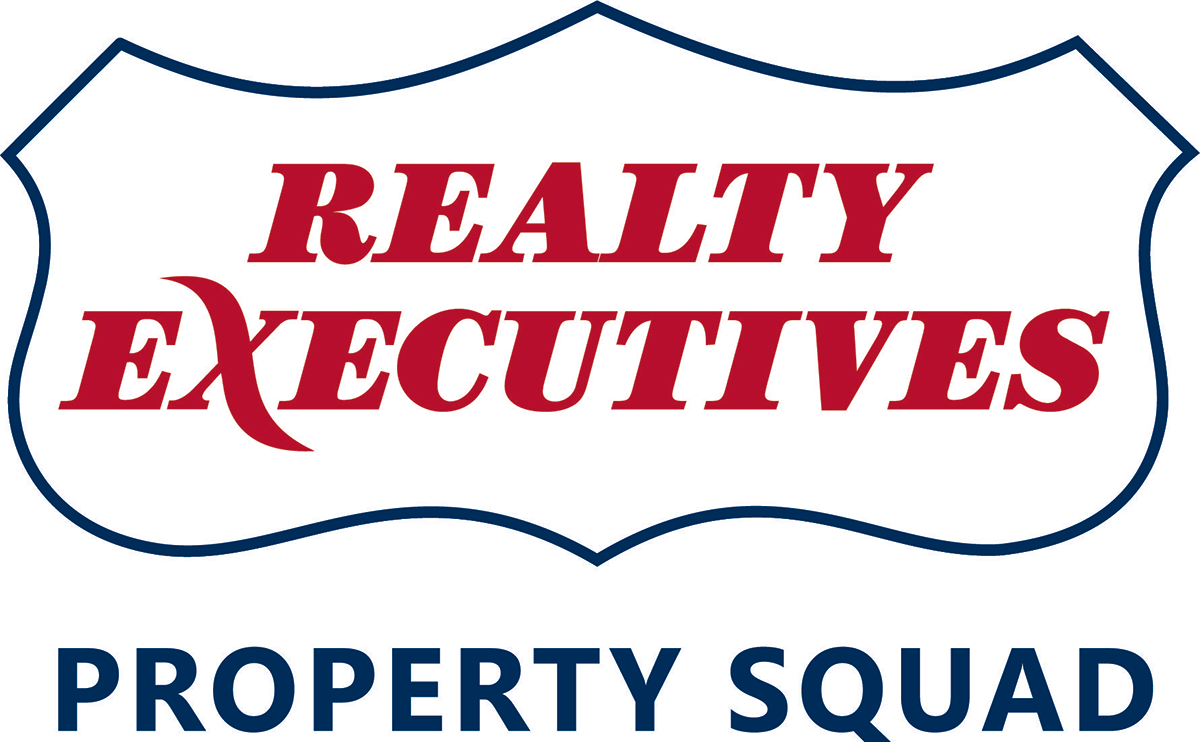Stepping into the world of homeownership for the first time can feel like navigating uncharted waters, filled with crucial decisions and important considerations at every turn. This guide shines a light on the path ahead for first-time homebuyers, providing essential insights and practical advice to ensure a smooth transition from dreaming to owning. Covering everything from understanding the financial intricacies and securing a mortgage to mastering the housing market and sealing the deal, we lay out a comprehensive roadmap. Whether your heart is set on a quaint bungalow or a spacious family abode, this resource arms you with the knowledge and confidence needed to transform those dreams into your very own home, marking a fulfilling start to your homeownership journey.

Understanding the Market
Embarking on the quest for your first home begins with a solid understanding of the real estate market’s current dynamics. The market’s ebb and flow are influenced by a variety of factors, including economic indicators, interest rates, and the balance between housing supply and demand. For first-time homebuyers, grasping these elements is crucial, as they significantly impact home prices and the competitiveness of the buying process.
One of the first steps in market comprehension is recognizing the importance of timing. The real estate market fluctuates between being favorable to buyers, where more homes are available than there are buyers, and being favorable to sellers, where the demand exceeds the supply. For a first-time buyer, purchasing during a buyer’s market might lead to more advantageous conditions, such as more negotiable prices and a wider selection of homes. On the flip side, a seller’s market might demand swift decisions and adaptability, as properties tend to sell quickly and at a premium.
Staying informed about market trends and future projections is vital. This knowledge can aid in strategizing the perfect time to make your move, ideally when the market conditions align with your financial readiness and housing needs. A professional real estate advisor can be invaluable during this phase, offering insights into market nuances and translating complex data into actionable advice.
This foundational knowledge of the market sets a solid base for the home-buying journey, preparing you to face the complexities of real estate with greater confidence. Armed with an understanding of how external factors can influence your home purchase, you’re better equipped to make informed decisions, ensuring a smoother transition from aspiring buyer to homeowner.
Setting Your Budget
The cornerstone of your home-buying plan is setting a realistic budget, a task that requires a comprehensive look at your financial health. Begin by evaluating your income, savings, and existing debts to understand how much you can afford to spend on a new home. This self-assessment should include an examination of your monthly expenses to ensure that your future mortgage payments do not stretch your finances too thin.
Determining your home-buying budget is more than just calculating how much you can borrow; it’s about understanding how much you should borrow. A key step in this process is obtaining a mortgage pre-approval. This involves a lender evaluating your financial background to determine how much they’re willing to lend you. Pre-approval not only gives you an accurate budget for your home search but also strengthens your position as a buyer in competitive markets.
Another important consideration is the additional costs associated with buying a home, such as closing costs, home inspections, moving expenses, and future maintenance. These expenses can add up quickly and should be accounted for in your overall budget. Planning for these costs upfront can prevent surprises down the road and ensure a smoother buying experience.
Setting a budget is an exercise in balancing your dreams with your financial realities. It requires careful planning, a clear understanding of your finances, and a willingness to make compromises. With a well-defined budget, you’re one step closer to finding a home that meets your needs without jeopardizing your financial health. This solid financial foundation is critical for navigating the home-buying process with confidence and securing your first home.
Securing Financing
Navigating the maze of mortgage options and securing financing is a pivotal step in the home-buying process. This phase begins with a deep dive into the different types of mortgages available, including fixed-rate, adjustable-rate, and government-insured loans. Each option has its nuances, benefits, and drawbacks, making it essential to align your choice with your long-term financial goals and current financial health.
The impact of your credit score on securing financing cannot be overstated. A higher credit score can unlock lower interest rates and more favorable loan terms, translating to significant savings over the life of your mortgage. Therefore, before applying for a loan, it’s wise to review your credit report, correct any inaccuracies, and take steps to improve your score if needed.
Down payment strategies are another critical aspect to consider. While a 20% down payment is traditionally recommended to avoid private mortgage insurance (PMI), many first-time homebuyer programs offer lower down payment options. However, a smaller down payment means a larger loan and potentially higher monthly payments, so it’s important to weigh your options carefully.
Securing financing for your first home involves more than just applying for a loan; it’s about making informed decisions that will affect your financial future. Start by researching and comparing different mortgage options, understanding the role of your credit score, and evaluating how much you can realistically afford to put down. Consulting with a financial advisor or a mortgage broker can provide personalized guidance tailored to your financial situation.
This step is not just about getting the keys to your new home; it’s about laying the groundwork for your financial stability and ensuring that your home is a blessing, not a burden, in the years to come.
Finding the Right Home
The journey to finding the right home involves a blend of personal needs, lifestyle preferences, and financial considerations. It starts with distinguishing between your must-haves and nice-to-haves. Must-haves are non-negotiable features essential for your new home, like the number of bedrooms, accessibility features, or proximity to work. Nice-to-haves, on the other hand, are desirable but not critical features, such as a swimming pool or a large garden, which you can compromise on if needed.
Location plays a critical role in your home search. It affects not only the home’s current and future value but also your quality of life. Consider factors like safety, schools, amenities, and commute times to your workplace. The perfect house in the wrong location can lead to regrets, so take your time to research and visit different neighborhoods to get a feel for where you’d like to live.
In today’s digital age, technology is a powerful tool in your home search. Online real estate listings, virtual tours, and neighborhood reviews can provide valuable information right at your fingertips. However, don’t overlook the importance of physically visiting homes. Photos and videos can’t always capture the nuances of a property, such as noise levels, neighborhood vibes, or even potential issues with the home itself.
Finding the right home is a process of exploration and discovery. It requires patience, diligence, and sometimes a bit of compromise. By prioritizing your needs, considering the long-term implications of your location, and leveraging technology, you’re well on your way to finding a home that not only meets your requirements but also feels right. This balance between practicality and personal preference is key to securing a home where you can build your future.
Making the Offer
Once you’ve found a home that ticks all the boxes, the next step is crafting a competitive offer that aligns with your budget and the market conditions. This involves not only deciding on a price but also understanding and including the right contingencies, such as financing or inspection requirements, which protect you as the buyer.
The offer should reflect a thorough analysis of the home’s value, taking into account recent sales of similar properties in the area, the home’s condition, and how long it’s been on the market. A well-informed offer demonstrates to the seller that you’re serious and knowledgeable about the process. It’s also important to be prepared for negotiation. Sellers might counter your initial offer, requiring you to reassess and respond. This back-and-forth can be a critical phase in securing your home at a fair price.
Including a personal letter with your offer can sometimes tip the scales in your favor, especially in competitive markets. A letter that expresses why the home is perfect for you and your family can create an emotional connection with the seller and make your offer stand out among others.
Negotiating the purchase of your first home can be complex and, at times, stressful. It’s essential to maintain flexibility and keep your must-haves and nice-to-haves in perspective. Remember, no home is perfect, and being willing to compromise on less critical aspects can facilitate a successful negotiation.
Successfully making an offer is a delicate balance of strategy, timing, and negotiation. With the right approach, you can navigate this step effectively, bringing you one step closer to owning your first home. This phase underscores the importance of patience, research, and, sometimes, a bit of creativity in the home-buying process.
Home Inspection and Appraisal
The home inspection and appraisal are critical steps in the home-buying process, assuring that you’re making a sound investment. A thorough home inspection conducted by a professional uncovers any potential issues with the property, from structural problems to outdated electrical systems. This is your opportunity to gain an in-depth understanding of the home’s condition, which can inform negotiations, especially if costly repairs are needed. It’s essential not only for protecting your investment but also for planning future maintenance and upgrades.
Following the inspection, the appraisal process evaluates the home’s value, ensuring that the price agreed upon reflects the market value. This is particularly important for securing financing, as lenders require an appraisal to confirm that the loan does not exceed the property’s value. An appraisal that comes in lower than the purchase price can lead to renegotiations, offering an opportunity to adjust the offer accordingly or, in some cases, to back out of the deal if the seller is unwilling to lower the price.
Navigating these steps can be complex, with the potential for unexpected issues to arise. For instance, significant problems identified during the inspection may require renegotiating the sale terms, or an appraisal discrepancy might necessitate additional financial planning. However, these hurdles also serve as safeguards, ensuring you’re fully informed about the property and its value before finalizing the purchase.
Approaching the home inspection and appraisal with due diligence ensures that you’re not just excited about your new home but also confident in its value and condition. These processes underscore the importance of thorough evaluation and informed decision-making in securing a home that is both a comfortable living space and a wise investment.
Closing the Deal
Closing the deal on your first home marks the culmination of your home-buying journey, a process that involves a final review of all the financial details and legal paperwork to transfer homeownership. This phase is both exciting and complex, requiring attention to detail to ensure everything is in order.
The closing process officially begins once the seller accepts your offer and both parties have met any contingencies listed in the contract, such as the home inspection and appraisal. At this stage, you’ll be working closely with your real estate agent, mortgage lender, and possibly a closing attorney to gather and review all necessary documents. These may include the mortgage agreement, title and deed documents, transfer taxes, and the closing disclosure, which outlines your loan’s terms, monthly payments, and closing costs.
What to expect on closing day varies, but generally, it involves signing a significant amount of paperwork in the presence of a notary. This paperwork finalizes your mortgage agreement, transfers the property title to you, and outlines your ownership rights. Closing costs, which can range from 2% to 5% of the home’s purchase price, are also settled at this time. These fees cover the services involved in finalizing your mortgage and home purchase, including loan origination fees, title insurance, and appraisal fees.
After all documents are signed and fees paid, you’ll receive the keys to your new home, marking the official change in ownership. The excitement of closing day is unmatched, as it signifies the beginning of a new chapter in your life.
Navigating the closing process with an understanding of each step and cost involved ensures a smooth transition to homeownership. It’s the final hurdle in the home-buying process, turning your dream of homeownership into reality. With careful planning and the right support, closing day can be a seamless and joyous milestone.
Moving In
The moment has arrived: moving into your new home, a significant milestone that marks the beginning of a new chapter in your life. Planning your move requires careful consideration to ensure a smooth transition, from hiring movers or enlisting the help of friends to deciding what to unpack first. This step is about more than just transporting your belongings; it’s about setting the stage for your future in a new space.
Before the move, create a detailed plan that includes a timeline, an inventory of your belongings, and a budget for moving expenses. Consider the logistics of moving day, such as reserving elevators if moving into or out of an apartment building, acquiring packing supplies, and arranging for utilities and internet service to be set up in your new home. Attention to these details can prevent last-minute stress and ensure that your first days in your new home are as comfortable as possible.
Once you’ve moved in, take the time to set up your home thoughtfully. This might involve immediate tasks like assembling furniture and unpacking essentials, followed by longer-term projects like painting or renovations. Remember, setting up your home is a process that doesn’t need to be rushed. Prioritize making your space functional and comfortable, reflecting your personal style and needs.
Engaging with your new community is also an important aspect of moving in. Introduce yourself to your neighbors, explore local amenities, and find ways to get involved, whether through community events, local organizations, or simply frequent local businesses. Building connections can help you feel at home more quickly and enrich your experience in your new location.
Moving into your new home is an exciting time of transition and discovery. With careful planning, a bit of effort, and an open heart, you can make this move not just a change of address but a meaningful step into a fulfilling new phase of your life.
Conclusion
Embarking on the journey to buy your first home is an exhilarating experience filled with anticipation and dreams of the future. This guide has walked you through the essential steps of the home-buying process, from understanding the market and setting a budget to securing financing, closing the deal, and finally moving into your new home. Each step is vital, requiring careful consideration and informed decision-making to ensure that your first home purchase is not only successful but also a joyful milestone in your life.
As you navigate this path, remember that you’re not alone. Professional guidance can make a significant difference, offering you insights, support, and clarity at every turn. Whether you’re just starting to consider buying a home or you’re ready to make an offer, we are here to help guide you through each step of the process. Our expertise and dedication to your success can transform the complexity of buying your first home into a smooth and rewarding experience.
When you’re ready to take the next step towards homeownership, reach out. Together, we can turn your dream of owning your first home into reality. Let’s embark on this exciting journey together, making your first home purchase an unforgettable adventure.

